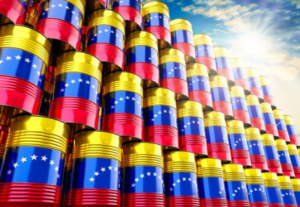#ChicagoWheat #FuturesMarket #CommoditiesTrading #RussianAttacks #UkraineAgriculture #MarketRecovery #InvestingInGrains #GlobalEconomy
The Chicago wheat futures market observed a notable uptick on Monday, rallying for the first time after a series of drops in four consecutive sessions. This upward movement in prices was primarily fueled by the repercussions of Russian military actions over the weekend, specifically targeting Ukraine’s vital agricultural infrastructure. These attacks raised significant concerns regarding the stability and future availability of wheat supplies from one of the world’s leading grain exporters, subsequently influencing the market dynamics favorably for wheat prices on the Chicago Board of Trade.
Ukraine, often referred to as the “breadbasket of Europe,” plays a pivotal role in the global wheat market, exporting substantial quantities to many countries. Therefore, any disruption in its agricultural operations can have far-reaching consequences on the global food supply chain and wheat prices. The Russian offensives come at a time when the global market is already grappling with various factors affecting grain supply, including adverse weather conditions in key producing regions and geopolitical tensions. The attacks on Ukrainian agricultural infrastructure not only pose a direct threat to immediate crop yields but also have the potential to undermine the country’s agricultural production capabilities in the long term.
Investors and traders closely monitoring the situation have reacted to these developments by adjusting their positions, leading to an increase in wheat futures. The rise in prices reflects a blend of immediate supply concerns and speculation about future market conditions. As the conflict continues, the market remains sensitive to any news that could indicate further disruptions to Ukraine’s grain output. The situation underscores the interconnectedness of global commodity markets and the profound impact geopolitical events can have on them. Moreover, with the uncertainty surrounding the duration and outcome of the conflict, stakeholders across the food supply chain, from farmers to consumers, find themselves at the mercy of market volatilities, highlighting the need for strategic planning and risk management in commodities trading and global food security discussions.







Comments are closed.